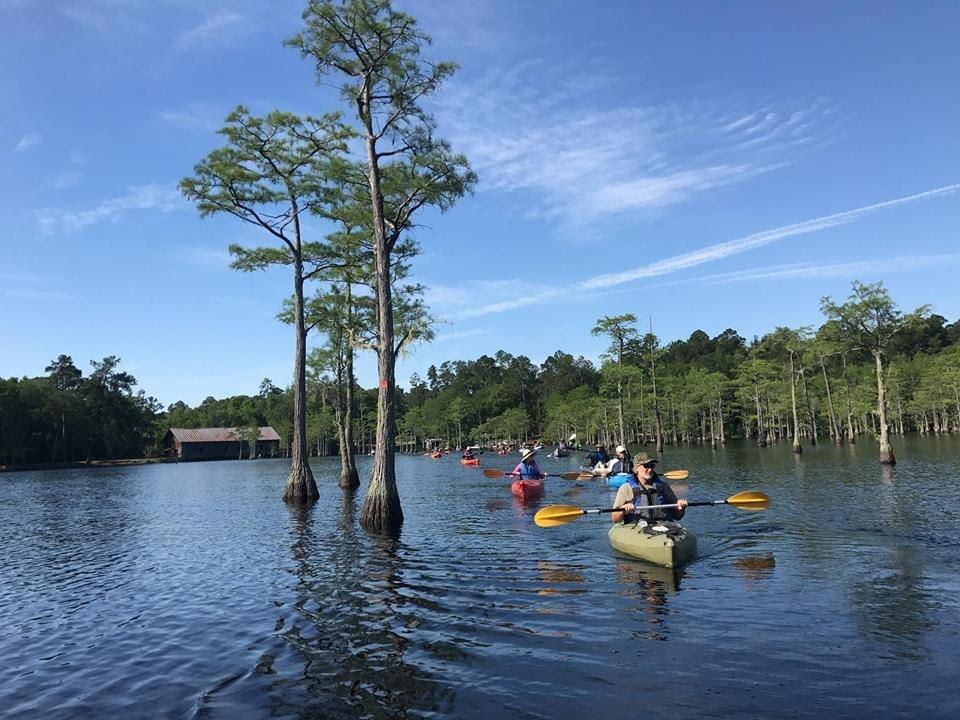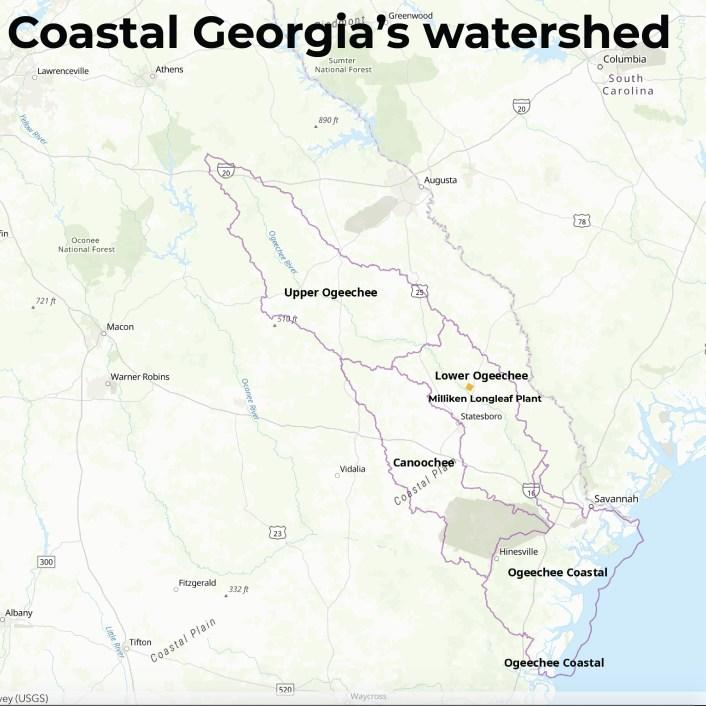
Caption
The Ogeechee River spans 245 miles from its headwaters 50 miles west of Augusta and just south of Interstate 20. Its flow meanders west of the Savannah River toward the coast, joining the Canoochee River before emptying into Ossabaw Sound, then to the Atlantic Ocean.
Credit: Ogeechee Riverkeeper


